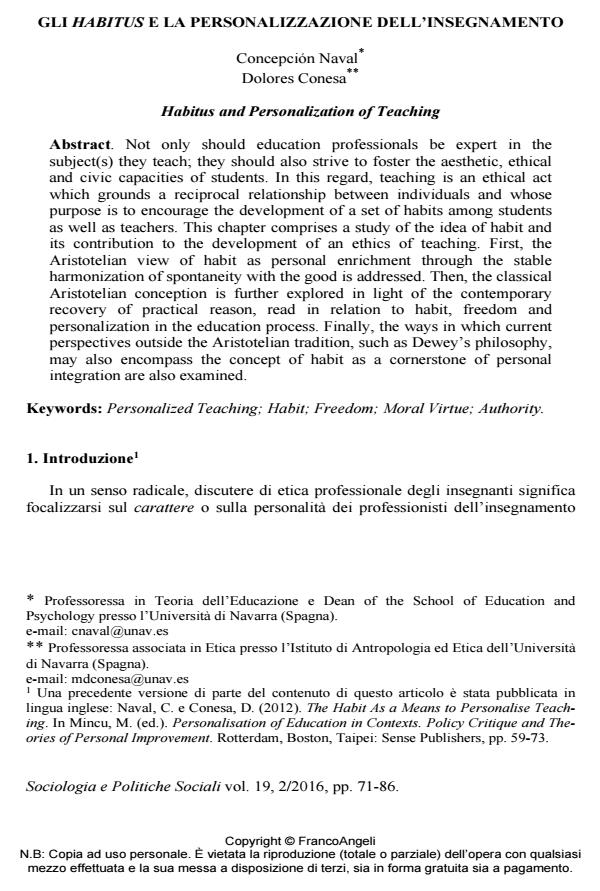Gli habitus e la personalizzazione dell’insegnamento
Titolo Rivista SOCIOLOGIA E POLITICHE SOCIALI
Autori/Curatori Concepciòn Naval, Dolores Conesa
Anno di pubblicazione 2016 Fascicolo 2016/2
Lingua Italiano Numero pagine 16 P. 71-86 Dimensione file 225 KB
DOI 10.3280/SP2016-002005
Il DOI è il codice a barre della proprietà intellettuale: per saperne di più
clicca qui
Qui sotto puoi vedere in anteprima la prima pagina di questo articolo.
Se questo articolo ti interessa, lo puoi acquistare (e scaricare in formato pdf) seguendo le facili indicazioni per acquistare il download credit. Acquista Download Credits per scaricare questo Articolo in formato PDF

FrancoAngeli è membro della Publishers International Linking Association, Inc (PILA)associazione indipendente e non profit per facilitare (attraverso i servizi tecnologici implementati da CrossRef.org) l’accesso degli studiosi ai contenuti digitali nelle pubblicazioni professionali e scientifiche
Not only should education professionals be expert in the subject(s) they teach; they should also strive to foster the aesthetic, ethical and civic capacities of students. In this regard, teaching is an ethical act which grounds a reciprocal relationship between individuals and whose purpose is to encourage the development of a set of habits among students as well as teachers. This chapter comprises a study of the idea of habit and its contribution to the development of an ethics of teaching. First, the Aristotelian view of habit as personal enrichment through the stable harmonization of spontaneity with the good is addressed. Then, the classical Aristotelian conception is further explored in light of the contemporary recovery of practical reason, read in relation to habit, freedom and personalization in the education process. Finally, the ways in which current perspectives outside the Aristotelian tradition, such as Dewey’s philosophy, may also encompass the concept of habit as a cornerstone of personal integration are also examined.
Parole chiave:Personalized Teaching; Habit; Freedom; Moral Virtue; Authority.
Concepciòn Naval, Dolores Conesa, Gli habitus e la personalizzazione dell’insegnamento in "SOCIOLOGIA E POLITICHE SOCIALI" 2/2016, pp 71-86, DOI: 10.3280/SP2016-002005